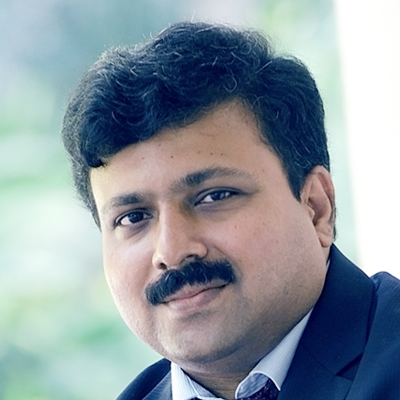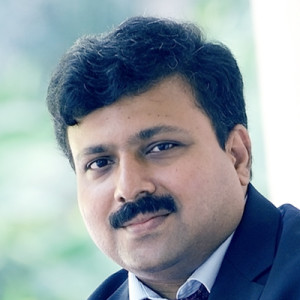

Ashraf ul Mannan, Director – Medical Genetics & Genomics, Strand Centre for Genomics and Personalized Medicine
In a world today where cancer still looms large as a major threat to our health, genetic screening possibly is the best solution to catch the disease at an early stage and undertake measures for prevention and complete recovery, says Ashraf ul Mannan, Director – Medical Genetics & Genomics, Strand Centre for Genomics and Personalized Medicine (A unit of Strand Life Sciences, Bangalore)
It is all in your genes. Right! More so when we are talking about cancer. Cancer, which is primarily a disease of abnormal gene function, is caused by mutation in the genes which leads to production of faulty proteins.

Research shows that there are two types of mutations, inherited (germ line) and acquired (somatic). An inherited gene mutation is present in every cell of the body and this kind of mutation is either passed on by parent(s) or occur de novo (first time) in the germ cell (egg or sperm). On the other hand an acquired (somatic) mutation is not present at birth, but is acquired over time in any organ such as breast, lung, colon etc. When cancer is observed in many members of a family and particularly when it occurs at an early stage of life (before 50 years), there is high likelihood that the cancer may be caused by an inherited gene mutation. Such type of cancer is termed as hereditary cancer.
So is there a way to determine how susceptible we are to cancer? Genetic testing“a cancer screening test can help determine your risk of inheriting cancer.
Take for example breast cancer. The genetic basis of hereditary breast cancer is primarily due to mutation in either the BRCA1 or BRCA2 genes and they are classified as high risk genes. In a woman carrying BRCA1 or BRCA2 mutation, the chances of developing breast cancer in their life-time is 40 to 85 per cent and ovarian cancer is 10 to 45 per cent. The chances of developing breast cancer increase significantly after the age of 30-40 years.

Thus with a family history of breast cancer it is advisable to take up the breast cancer screening test. Strand Germline Breast Cancer Test involves screening of 13 genes (including BRCA1 and BRCA2) implicated in breast and/or ovarian cancer for mutation. The test sequence these genes by next generation sequencing (NGS) technology, which allows sequencing of multiple genes relevant to a disease/cancer at a fraction of cost as compared to traditional method (Sanger sequencing). Genetic mutations are identified by state-of-the-art variant classification techniques powered by software, such as: STRAND NGS software and StrandOmics platform, which ensure most accurate interpretation of NGS data and identify clinically significant mutation, which may be the likely cause for the cancer.
Genetic testing will help in confirming the diagnosis of cancer, predicting the risk of cancer and identify at risk family members. After testing, genetic counselling is provided where the genetic counsellor will provide recommendations to the high risk family members for surveillance measures for early detection and prevention of cancer. Also, advices on measures for effective disease management are provided to the family members.
Apart from breast/ovarian cancers, there are several other forms of hereditary cancers such as colorectal cancer, prostate cancer, endometrial cancer, endocrine cancers (pancreas, thyroid, etc.), skin cancer (melanoma), kidney cancer and cancer syndromes. Also, several forms of rare cancers are also caused by germline mutations. Strand Germline Cancer Panel offer genetic testing for all these hereditary cancers as well.
In a world today where cancer still looms large as a major threat to our health, genetic screening possibly is the best solution to catch the disease at an early stage and undertake measures for prevention and complete recovery.
Be a part of Elets Collaborative Initiatives. Join Us for Upcoming Events and explore business opportunities. Like us on Facebook , connect with us on LinkedIn and follow us on Twitter , Instagram.












